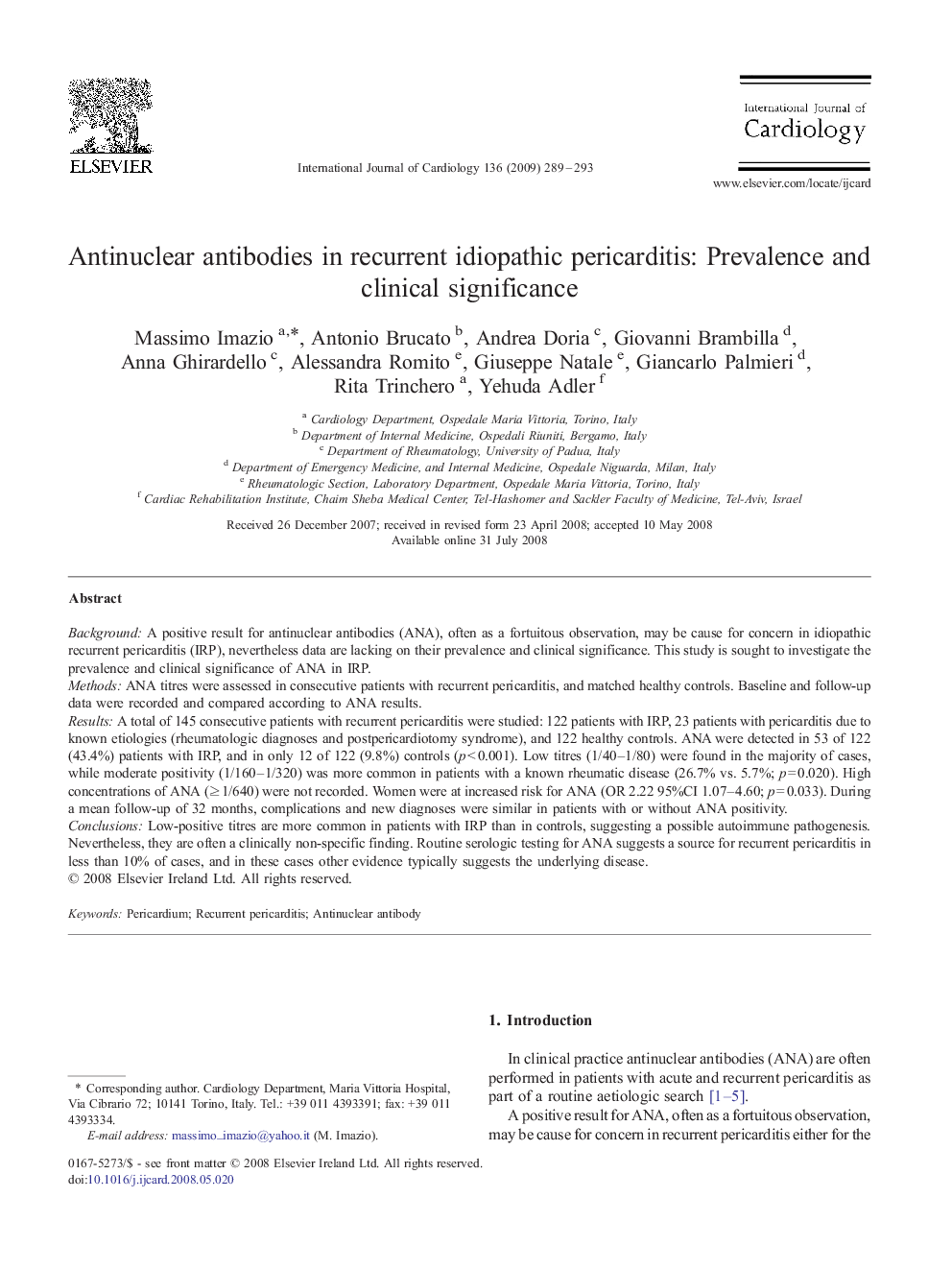| Article ID | Journal | Published Year | Pages | File Type |
|---|---|---|---|---|
| 2933374 | International Journal of Cardiology | 2009 | 5 Pages |
BackgroundA positive result for antinuclear antibodies (ANA), often as a fortuitous observation, may be cause for concern in idiopathic recurrent pericarditis (IRP), nevertheless data are lacking on their prevalence and clinical significance. This study is sought to investigate the prevalence and clinical significance of ANA in IRP.MethodsANA titres were assessed in consecutive patients with recurrent pericarditis, and matched healthy controls. Baseline and follow-up data were recorded and compared according to ANA results.ResultsA total of 145 consecutive patients with recurrent pericarditis were studied: 122 patients with IRP, 23 patients with pericarditis due to known etiologies (rheumatologic diagnoses and postpericardiotomy syndrome), and 122 healthy controls. ANA were detected in 53 of 122 (43.4%) patients with IRP, and in only 12 of 122 (9.8%) controls (p < 0.001). Low titres (1/40–1/80) were found in the majority of cases, while moderate positivity (1/160–1/320) was more common in patients with a known rheumatic disease (26.7% vs. 5.7%; p = 0.020). High concentrations of ANA (≥ 1/640) were not recorded. Women were at increased risk for ANA (OR 2.22 95%CI 1.07–4.60; p = 0.033). During a mean follow-up of 32 months, complications and new diagnoses were similar in patients with or without ANA positivity.ConclusionsLow-positive titres are more common in patients with IRP than in controls, suggesting a possible autoimmune pathogenesis. Nevertheless, they are often a clinically non-specific finding. Routine serologic testing for ANA suggests a source for recurrent pericarditis in less than 10% of cases, and in these cases other evidence typically suggests the underlying disease.
